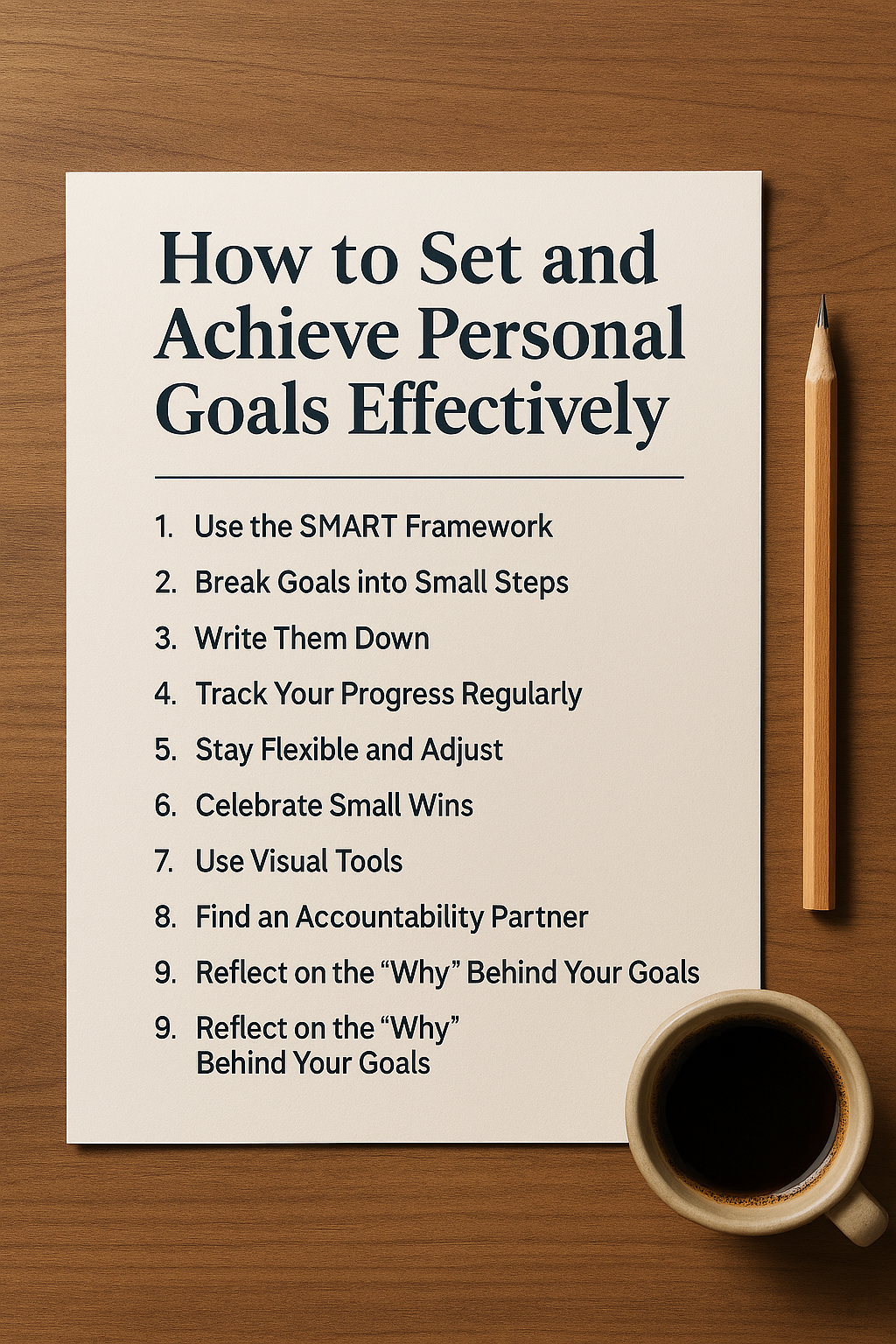Setting personal goals is one of the most powerful ways to take control of your life. When you know what you want and have a clear plan to reach it, your actions become intentional and your progress measurable. However, many people struggle to follow through because they set vague, unrealistic, or unmotivating goals. In this article, you’ll learn how to set and actually achieve meaningful personal goals using simple, proven strategies.
1. Understand Why Goals Matter
Personal goals give direction to your time and energy. They help you prioritize what’s important, track progress, and stay motivated during setbacks. Goals also help build discipline, resilience, and a greater sense of purpose in your daily life.
2. Use the SMART Framework
One of the most effective goal-setting methods is the SMART approach. Make your goals:
- Specific – Clear and well-defined
- Measurable – Trackable and quantifiable
- Achievable – Realistic given your current resources
- Relevant – Aligned with your values and life purpose
- Time-bound – Set a clear deadline
Example: “I want to lose 5kg in 3 months by going to the gym 4 times per week and eating more vegetables” is a SMART goal.
3. Break Goals into Small Steps
Large goals can feel intimidating. Breaking them into smaller milestones makes them more manageable and less overwhelming. Create an action plan that outlines what you’ll do weekly or even daily to move forward.
For instance, if your goal is to write a book, your first milestone might be writing one page a day for a month.
4. Write Them Down
Studies show that people who write their goals down are significantly more likely to achieve them. Keep a notebook, use a planner, or write your goals on sticky notes and place them where you’ll see them daily. This visual reminder reinforces your commitment.
5. Track Your Progress Regularly
Review your progress weekly or bi-weekly. Ask:
- What worked well?
- What needs adjustment?
- What did I learn this week?
Tracking your progress builds motivation and helps you course-correct before falling too far off track.
6. Stay Flexible and Adjust
Life is unpredictable, and sometimes you’ll need to adapt your goals. If your timeline or strategy no longer makes sense, revise it. Flexibility is not failure—it’s smart planning that allows you to keep moving forward under real-life conditions.
7. Celebrate Small Wins
Acknowledging progress keeps you motivated. Every completed task, no matter how small, deserves recognition. Celebrate with something simple: a favorite treat, a break, or sharing your win with a friend.
8. Use Visual Tools
Vision boards, calendars, habit trackers, or progress bars can help you visually connect with your goals. These tools provide daily motivation and remind you of the bigger picture you’re working toward.
9. Find an Accountability Partner
Having someone to share your goals with can dramatically increase your success rate. A friend, mentor, or coach can help you stay on track, offer encouragement, and challenge you when you get off course.
10. Reflect on the “Why” Behind Your Goals
Whenever motivation fades, reconnect with your deeper reason for setting the goal. Why is this important to you? What will your life look like once you achieve it? Purpose fuels perseverance.
Turning Vision Into Reality
Setting personal goals isn’t just about getting things done—it’s about becoming who you want to be. With clarity, structure, and consistent effort, you can transform your goals into reality. Start small, stay focused, and remember that each step forward is a victory worth celebrating.

